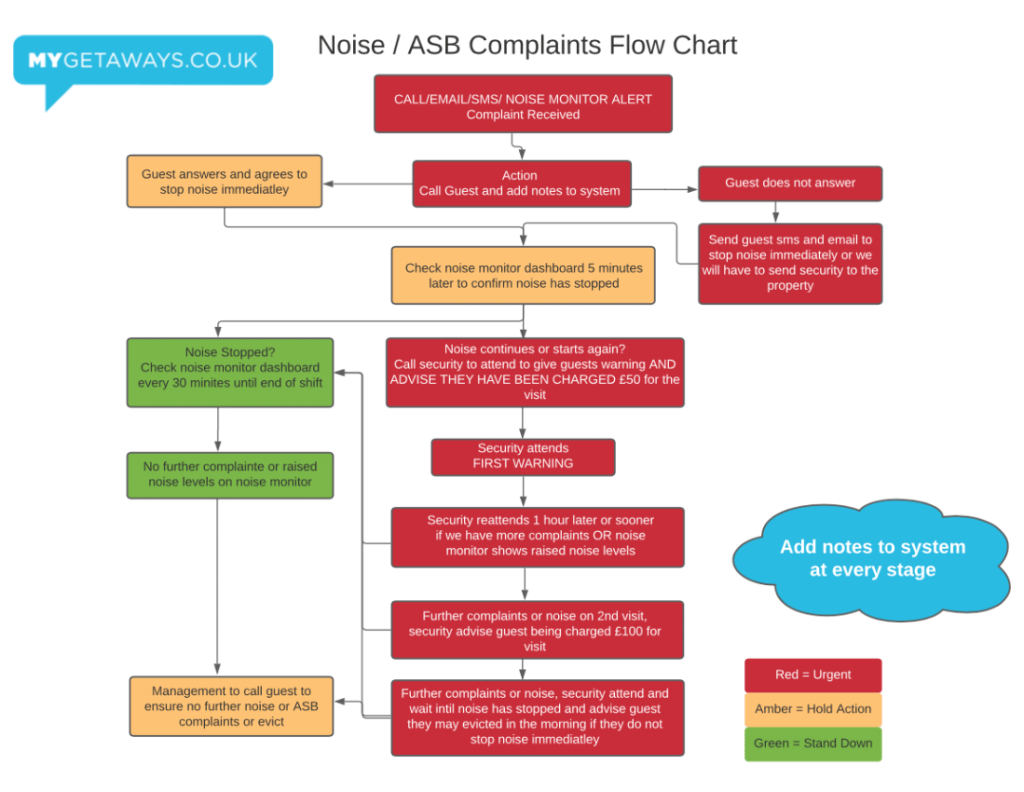Reduce noise complaints by 80% in your short term rental Airbnb property and be a good neigbour!

Being an Airbnb short term rental property manager comes with its fair share of challenges, especially when your portfolio consists of urban properties frequented by weekenders, stag parties, and hen parties. One of the major headaches for any property management company, and indeed a potential business killer, is noise complaints. This blog post aims to guide you through effective noise action planning to not only make you a good neighbor but also to reduce noise complaints by a staggering 80%.
Who are We?
My Getaways is the largest short term rental, holiday let, Airbnb Property Management company in Brighton & Hove and the wider Sussex area, with a large urban portfolio of properties and a considerable market in the stag/hen and big weekend segments. Our properties mainly consist of large terraced houses and apartments in urban locations.
The senior team have a background in management and crowd control in nightclubs and festivals, so have adapted this knowledge to ensure our short term rental properties are protecting neigbours from our occasional guests who decide to break our house rules.
Why Noise Management is Crucial
To Be a Good Neighbour
Being considerate of your community is not just good ethics but also good business.
Business Continuity
Excessive noise complaints can tarnish your reputation and lead to loss of business.
Legal Consequences
Unaddressed noise issues can lead to enforcement actions from the Environmental Health Office (EHO).
House Rules
It’s crucial to establish a set of house rules that guests must follow, for example:
- No smoking or vaping.
- Parking restrictions must be followed.
- Pets should comply with the pet policy.
- No outdoor shoes inside the property.
Quiet Hours
Designate “quiet hours” typically between 10 pm and 8 am during which guests must keep noise levels to a minimum.
Communication Strategy
House Rules and Quiet Hours
These should be communicated clearly to the guests both before and during their stay.
Noise Monitoring
Make guests aware that noise levels are monitored in the property and that penalties may apply for violations.
Noise Risk Assessment & Action Plan
Treat noise risk as you would fire risk and develop a comprehensive Noise Action Plan.
Step by Step Requirements
Overnight Support Team
Have Virtual Assistants (VAs) to monitor noise levels 24/7, especially overnight.
Hardware and Software
Use noise monitoring hardware and software to detect noise levels, we use Minut hardware and software.
Local Mobile Security
Hire a local mobile security service to physically assess and enforce noise levels if needed.
Steps to Managing Noise
- Contact the lead guest if the noise level exceeds a certain limit.
- Monitor every 5 minutes until the noise is reduced.
- Instruct security to visit the site if the problem persists.
- Evict the guest in the morning as a last resort.
Outcomes and Benefits
By proactively managing noise levels, we have been able to reduce noise complaints by 80%.
Key Takeaways
- Create and train your team on a Noise Action Plan.
- Clearly communicate your house rules and potential penalties to guests.
- Be proactive in enforcing your Noise Action Plan.
With the right planning and enforcement, you can drastically reduce noise complaints, keeping your neighbours happy and your business running smoothly. So let’s all strive to be good neighbours!
Get in touch for a complimentary, no-pressure chat about how My Getaways can help your property outperform the competition and continue to be a good neighbour.
—
Book a discovery call with one of our team by clicking here
Or contact us
+44 (0) 1273 917 909
owners@mygetaways.co.uk
—
We look forward to showing you the My Getaways difference!
By Steve Taggert – Founder and Managing Director – My Getaways August 2023
